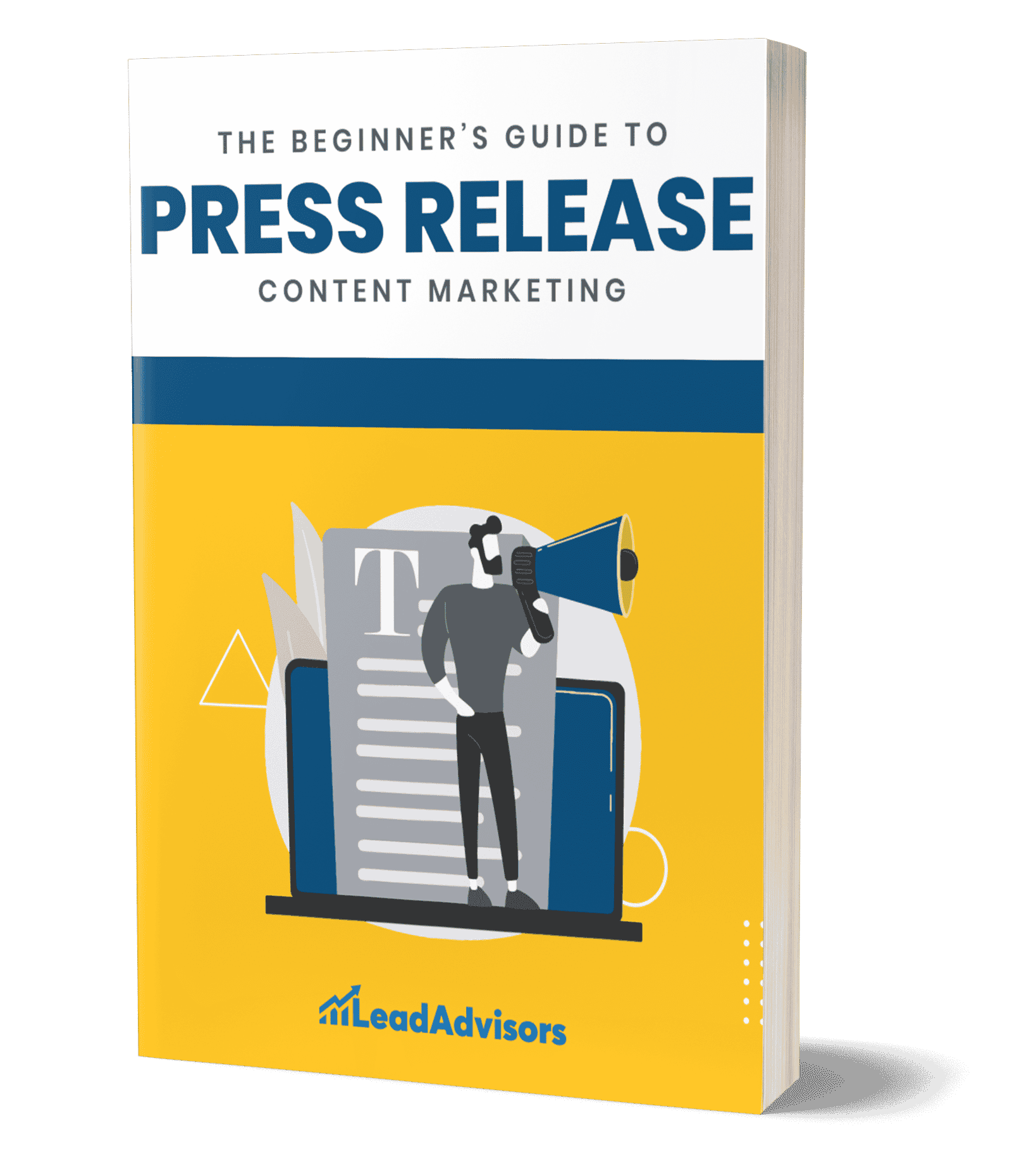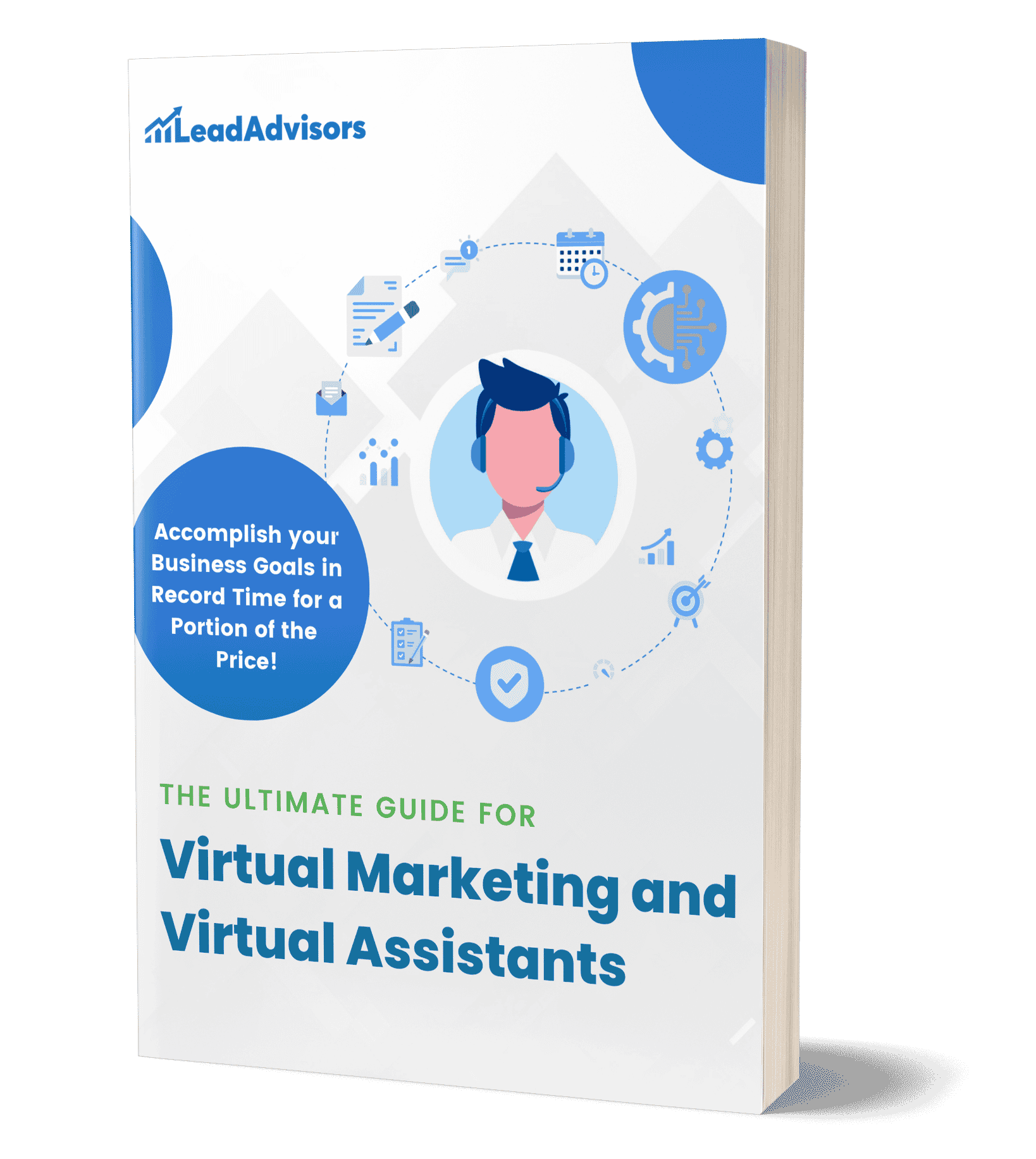Finding the right fit starts with the right questions. Whether you’re a candidate or a hiring manager, call center interviews matter—especially as more businesses outsource to the Philippines to access top-tier talent.
The person answering the phone is the first voice a customer hears. That exchange can spark trust or shatter it. In a fast-paced world of high call volumes, finding the right fit is crucial—especially since industry churn can reach 45%. A poor hire wastes resources and damages morale, making the interview process a high-stakes game changer.
This guide helps you prepare for your next interview or improve your hiring process. Let’s ensure both sides enter the room confident, clear, and ready to succeed.
TL;DR: The 2026 Call Center Interview Guide
In 2026, the call center industry has shifted from “volume” to “Value-Added Human Support.” As companies increasingly outsource to Philippines to access high-EQ talent, the interview process now focuses on how humans and AI work together.
Key Takeaways for 2026:
The “Super Agent” Profile: Hiring is no longer about following scripts; it’s about Intelligent Empathy—handling the complex, emotional cases that AI cannot resolve.
Human-in-the-Loop (HITL): Candidates must demonstrate AI Fluency, showing they can “pilot” AI co-pilots and override automated suggestions when human judgment is needed.
New Metrics: Success is measured by the Sentiment Score and First Call Resolution (FCR), rather than just speed or handle time.
Distributed Leadership: Managers now focus on Distributed Workforce Management, using AI dashboards to monitor remote team well-being and security via Voice Biometrics.
Culture Add over Culture Fit: Teams are looking for unique perspectives that improve the “Human-AI” hybrid experience.
Types of Call Center Interview Questions
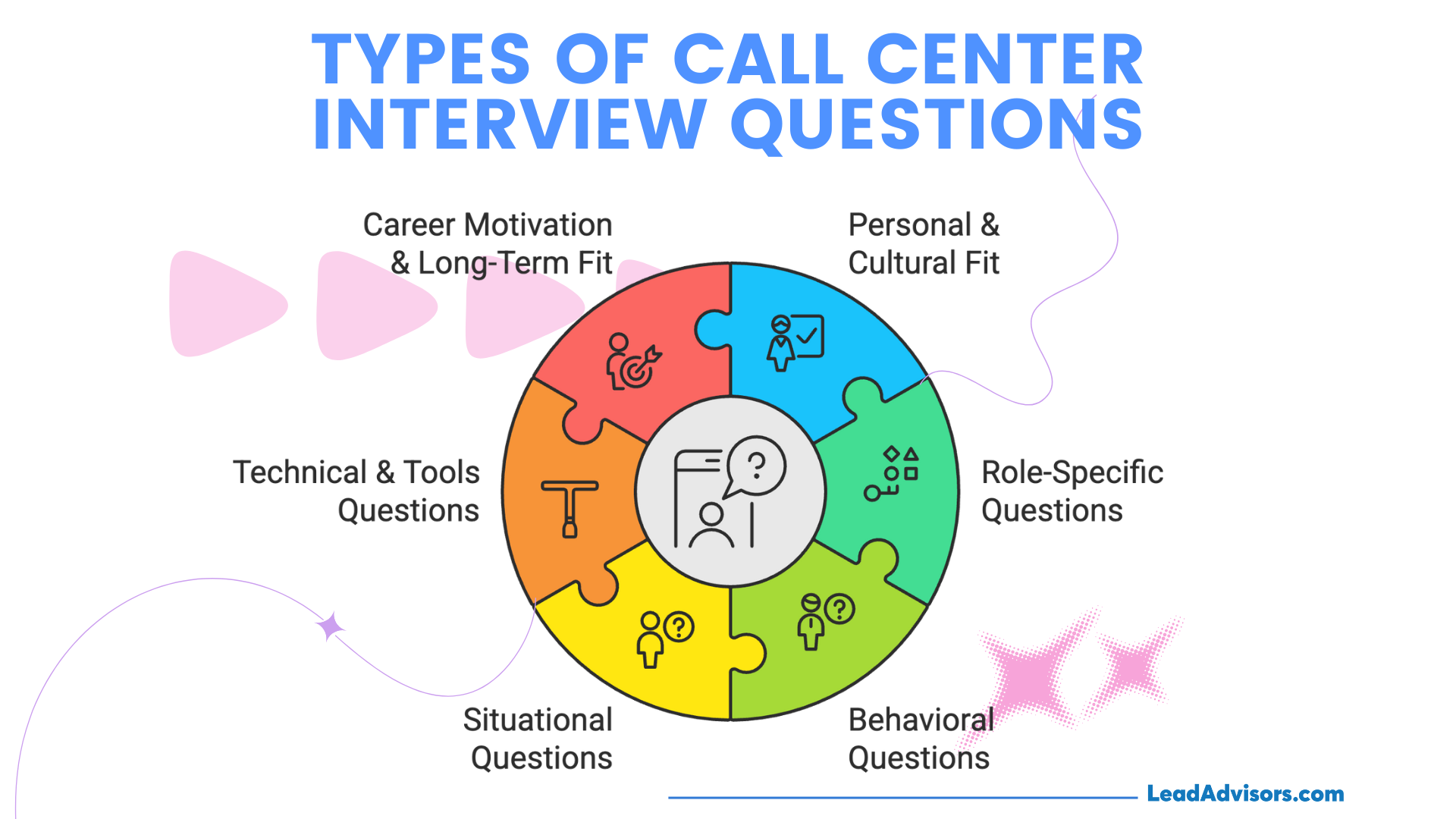
If you’re anything like me, preparing for an interview (or creating one as a hiring manager) can be stressful. But the good news is that most call center interview questions are pretty standard. Knowing in advance what to expect – or what to ask – can make the whole interview process feel a whole lot less stressful.
1. Personal Values & “Culture Add”
In the 2026 landscape, we no longer hire for “Culture Fit,” which can lead to stagnant, homogenous teams. Instead, we look for Culture Add: What unique perspective or life experience does this candidate bring to the table? This is especially vital for teams that outsource to the Philippines, where a blend of local cultural nuances and global service standards creates the most resilient workforce.
The Era of “Intelligent Empathy” With AI now handling 80% of routine inquiries (billing, tracking, FAQs), the calls that reach a human agent are the 20% that are high-stakes, emotionally complex, or technically messy. This requires Intelligent Empathy—the ability to not just “be nice,” but to clinically de-escalate a crisis while the AI co-pilot handles the data in the background.
New Focus: High-Empathy Scenarios
The Question: “Tell me about a time you had to go ‘off-script’ to help a customer in a genuine crisis. How did you balance the company’s policy with the customer’s emotional state?”
What to look for: Does the candidate treat empathy as a tool for resolution, or just a script? In 2026, the “Human-in-the-loop” is the ultimate premium service.
Assessing Culture Add: * The Question: “How has your unique background helped you connect with a customer that a standard automated system simply couldn’t understand?”
2. Role-Specific Questions
In 2026, leadership has evolved into Distributed Workforce Management. Supervisors no longer just walk a “floor”; they manage hybrid and 100% remote teams across borders—often coordinating between local staff and teams that outsource to the Philippines.
What to add: Questions must now focus on digital oversight and “Intelligent Coaching.”
The New KPI — Sentiment Score: In 2026, we track more than just speed. The Sentiment Score (analyzed via AI) is now a standard KPI alongside CSAT and FCR. It measures the emotional arc of a call, helping supervisors spot “Silent Burnout” in agents before it impacts performance.
New Question Example: “How do you use your AI dashboard to identify which remote agents need a ‘well-being break’ versus those who need technical coaching?”
Managing the “Human-AI” Hybrid: Ask how the supervisor ensures agents are using AI Co-pilots effectively without losing their personal, empathetic touch.
3. Behavioral Questions
In 2026, behavioral questions have moved beyond simple conflict resolution. With the rise of “Human-in-the-Loop” (HITL) workflows, hiring managers—especially those who outsource to the Philippines to find high-EQ talent—are looking for candidates who can supervise AI in real-time.
The New Focus: Human-in-the-Loop (HITL) HITL means the AI does the heavy lifting, but the human provides the final “judgment call.” This is critical when an AI might misinterpret sarcasm, cultural nuances, or high-stakes emotional distress.
STAR 2.0 Question: “Describe a time when an AI co-pilot or automated system provided a suggestion that didn’t feel right for the customer’s situation. How did you override it, and what was the result?”
Situation: I was assisting a customer with a complex billing error that the AI categorized as a “standard late fee.”
Task: The AI co-pilot suggested I follow the “no-refund” macro, but I noticed the customer’s tone was unusually distressed.
Action: I overrode the AI’s suggested script, used Real-time Sentiment Analysis to confirm the customer was reaching a “frustration peak,” and applied a manual credit while flagging the AI’s error to my supervisor.
Result: The customer felt heard, and I provided feedback to the dev team to update the AI’s logic for that specific edge case.
Why this matters: In 2026, the “Action” in your STAR response should highlight your Critical Thinking—proving you are the master of the tools, not just a user of them.
4. Situational Questions
Instead, these are the “what would you do if…” situations. They’re meant to gauge your problem-solving skills and composure under pressure, whether from technical glitches or challenging customers.
5. Technical & Tools Questions
In 2026, proficiency goes beyond logging tickets in a CRM. Most high-performance centers—particularly those that outsource to the Philippines—operate in an AI-first environment. Employers now look for “AI Fluency”: the ability to work alongside Agentic AI (autonomous agents that handle routine tasks) and respond to Real-time Sentiment Analysis.
What to highlight: Experience with AI Co-pilots that suggest responses mid-call, and your ability to interpret live Speech Analytics (which flags if a customer is getting frustrated before they even say it).
Key Question: “Tell me about a time you used real-time AI suggestions or sentiment alerts to turn a negative customer interaction into a positive one.”
Prompt Engineering Basics: Be prepared to discuss how you “nudge” or provide feedback to internal AI tools to get better, more accurate customer data.
6. Career Motivation & Long-Term Fit
Employers would like to believe you’re working for more than just a paycheck. Questions here might include:
- “Why do you want a call center job?”
- “Where do you see yourself in 3 years?”
This allows them to gauge your future career path and whether you will be in it for the long haul, including professional development, growth, and how you align with their mission.
Personal & Cultural Fit Interview Questions
Let’s be real – skills are teachable; attitude and personality? This is where the magic happens in a call center. These call center interview questions help determine whether the candidate’s personality matches the team and company vibe.
Here are a few go-to questions hiring managers often ask:
- “Tell me about yourself.”
They are a classic for a reason. It allows candidates to demonstrate some personality, share some biography, and set a tone. - “What do you like to do for fun?”
It’s a casual question, but this helps us identify a positive attitude and whether or not someone can bring balance to a high-pressure, fast-paced environment. - “How would past coworkers or managers describe you?”
This is where EQ comes in. Do they mention their communication skills? Their ability to handle pressure? - “What’s your proudest achievement?”
An opportunity for candidates to tell a winning story that highlights a soft skill or some form of perseverance. - “Why do you want to work here?”
This one goes even deeper into alignment with the company’s mission and demonstrates enthusiasm for being more than just another employee. - “What motivates you?”
The response here will frequently indicate how effectively a person can juggle many balls, make difficult decisions, or work long hours. - “Where do you see yourself in 5 years?”
This question can help employers identify job candidates who are interested in career growth and might stick around for the long haul.
Hiring Tip: These questions are gold for gauging emotional intelligence, positivity, and just how well someone may culturally fit your organization. It should be easy to find honesty, self-awareness, and a team-first mentality, too.
Role-Specific Questions for Call Center Agents

So, what are the essentials for great call center work? Things like: Call handling with confidence, empathy, and accuracy. When you’re hiring for a call center agent position, you’re not just looking for someone who can talk. You are looking for someone who can juggle competing priorities, think on their feet, and deliver high-level customer service in a high-pressure setting.
Here are some common call center questions your potential employer might ask you – and what you need to know to answer them well.
What’s your idea of a call center?
Why it’s asked: It’s used to gauge whether the candidate knows what it’s like to work in a call center.
What to look for: Someone who believes that a call center is a living, breathing center for customer inquiries and not just a place where phones ring off the hook. Seek an answer that mentions problem-solving, teamwork, and assisting customers by communicating effectively.
What does good customer service mean to you?
Why it’s asked: This question lets you understand how the applicant perceives great customer service.
How to answer it well: An effective answer should address active listening, empathy, timely response, and going above and beyond to create good customer experiences. Extra credit if it articulates alignment with the company’s values, or highlights a relevant skill (say, patience or professionalism in dealing with clients).
How do you handle a frustrated or angry caller?
Why it’s asked: This is a question that you are bound to encounter in a call center agent role. It’s a matter of your skills in calming down challenging situations and providing great customer service under high pressure.
Answer tip: Follow the STAR method. Discuss how you remained calm, actively listened, and worked on finding a solution. Remember to highlight that you followed company protocol and honored private customer information.
What’s your process when you don’t know the answer to a question?
Why it’s asked: This shows honesty, resourcefulness, and how you deal with the pressure.
What to highlight: Tell them you would soothingly inform the customer that you are making sure you find the best resolution, and then contact a supervisor or internal knowledge base, and give the customer a call back. This lets the customer know they are being taken care of, and you are not just making stuff up or guessing.
How do you stay calm during high call volume?
Why it’s asked: High-stress situations occur daily in a call center. Can the candidate handle it?
Best answers include: Time management skills, prioritizing tasks, deep breathing, staying organized, and focusing on each customer call in front of you, even when there is a queue of them. Keeping calm = keeping effective.
Are you familiar with [software]?
Why it’s asked: Most of today’s contact centers are powered by CRMs, ticketing platforms, or live chat tools. And experience is a huge plus here.
Answer like this: Be specific, dropping names like Zendesk, Salesforce, or even custom systems you’ve used. Discuss how using tech tools allowed you to reduce response times and provide good customer service.
Do you speak [language]?
Why it’s asked: Many employers have broad customer bases. Being bilingual is highly beneficial for a call center agent position.
Bonus if you can say: You’ve utilized your language skills in previous customer conversations, aiding in clarity and connection.
Candidate Tip: Give an example answer for each question using the STAR method. It keeps you focused and lets you see firsthand how the work you have done has made a tangible difference. Think empathy, efficiency, teamwork, and product knowledge – because that’s what makes a center agent successful.
Role-Specific Questions for Call Center Supervisors/Leaders
When you assume a leadership role in a call center, you’re more than someone who just takes calls; you’re navigating the entire call center environment. These center interview questions help you measure how candidates lead teams, analyze data, and drive quality customer service through others.
“How many people have you managed before?”
What it reveals: Team size and leadership experience.
Why it matters: Supervisors manage both small groups and whole shifts. Specify the range. Is this for remote versus in-house, multi-ethnic teams, and complex role matrices?
“What’s your approach to onboarding and training?”
What it reveals: Your management style and coaching abilities.
What to highlight: A set plan (shadowing, hands-on training, check-ins), along with continued call center coaching, professional development, and feedback loops.
“How do you address underperformance on your team?”
What it reveals: Your problem-solving abilities and empathy.
What to share: Discuss performance reviews, feedback discussions, action plans, and progress monitoring. Give an example of the STAR model to show actual progress.
“Describe a time you escalated a call and how you resolved it.”
What it reveals: Accountability and escalation management.
How to respond: Discuss the situation, explore why escalation was necessary, describe your action, and the result, such as a better outcome or a change in policy.
“How do you motivate your team in high-stress periods?”
What it reveals: Leadership under pressure and morale-boosting strategies.
What to include: Motivational triggers such as incentives for meeting goals, recognition programs, brief debriefs, or showing appreciation with small “thank-you” moments.
“What KPIs do you track, and how do you act on them?”
What it reveals: Your data-driven leadership and operational knowledge.
Key metrics to mention:
- Average Handle Time (AHT) – measures efficiency
- First Call Resolution (FCR) – a top-tier quality metric; industry benchmark: 70–75%
- Customer Satisfaction (CSAT) and Customer Satisfaction Score
- Abandonment Rate, Speed of Answer, and Adherence to Schedule
Workforce management in the call center can directly impact adherence, AHT, and overall performance.
How to answer: Let us know how you use these measurements to improve performance, such as by spotting trends, coaching, process tweaks, or incentive systems.
Bonus Question: “What do you think makes a call center operation successful?”
What it reveals: Your leadership philosophy and understanding of customer experience.
Strong answer: Emphasize clear communication, training, accountability, coaching, and a relentless focus on great customer service.
Conversation tip: Whether you’re a hirer or an interviewee, answer in ways that illustrate your aptitude for communication, critical thinking, problem-solving, etc. If you’re discussing things like FCR or AHT, go a step further and explain how having these KPIs in place led to real improvements in the customer’s experience.
Behavioral Interview Questions
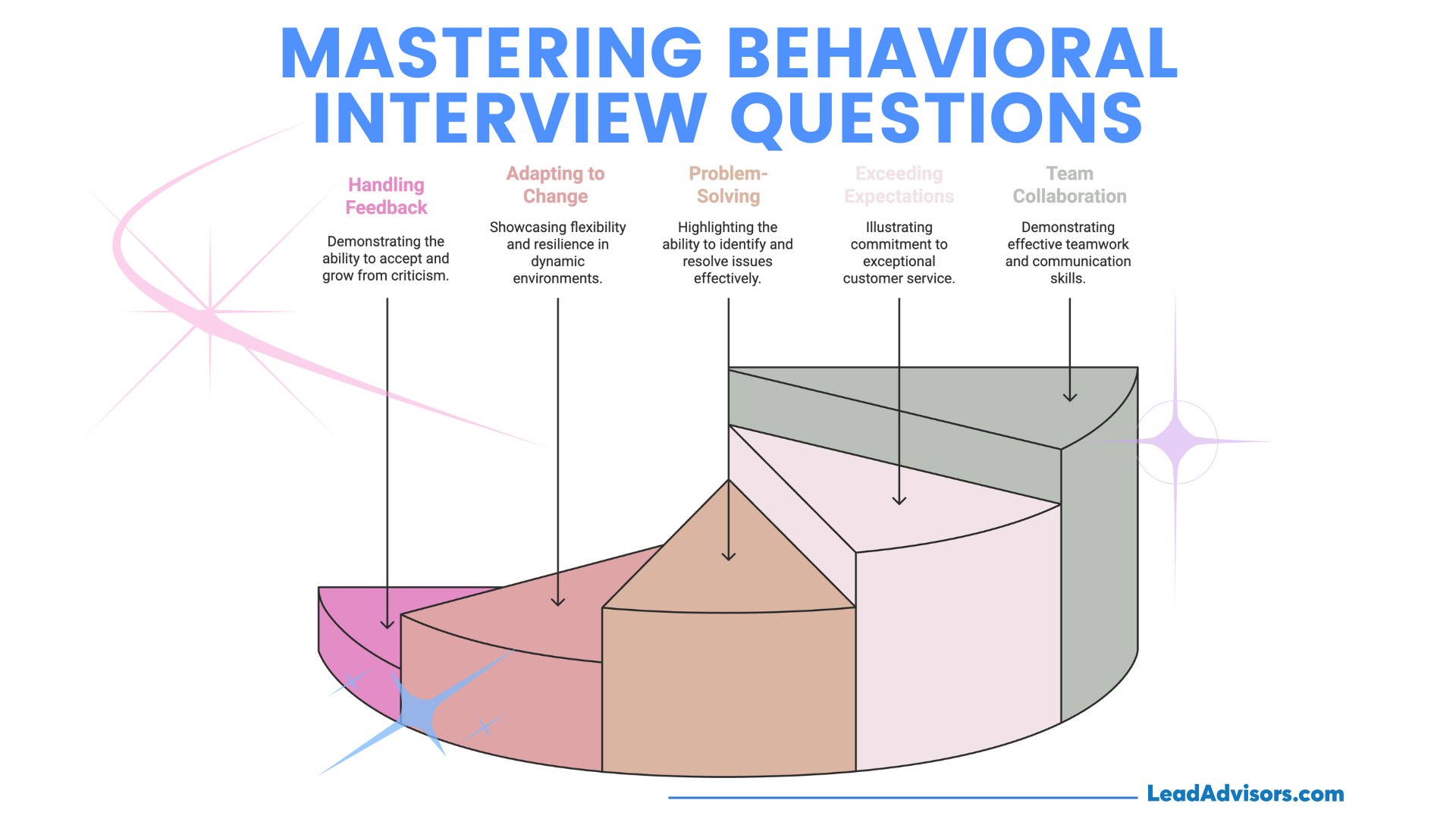
Expect a few curveballs in a call center interview – not because interviewers are trying to trip you up, but because they want to see how you actually react when things get messy, or tense, or complicated. This is where behavioral questions fill the gap. They want tangible experience from your past. And believe me, the right story can really be your secret weapon.
Here’s a guide to the ones we commonly encounter and how to tackle them like a pro:
“Tell me about a time you received critical feedback.”
Why they ask: This testifies to how you handle criticism, a critical skill in the contact center sector, as feedback can be delivered quickly.
How to answer it well:
- Be honest: “At first, I felt defensive, but…”
- Focus on growth: Share how the feedback improved your communication skills or helped you hit a KPI.
“How do you handle change?”
Why they ask: Call center life is always changing – new tools, updated scripts, policy shifts.
- Talk about a change you didn’t expect (new CRM, leadership, sudden high call volumes).
- Share how you stayed adaptable and helped teammates adjust, too.
“What’s the biggest mistake you’ve made and how did you handle it?”
Why they ask: Everybody makes mistakes – even call center workers – so it’s all about how you bounce back.
What makes a good answer:
- Own it. Don’t sugarcoat.
- Focus on the problem-solving and the fix.
- If it involved mishandling customer inquiries, explain how you protected sensitive customer information and resolved the issue.
“Give an example of going above and beyond for a customer.”
Why they ask: They want to see if you provide great customer service, even when it isn’t mandatory.
Winning story tip:
- Maybe you stayed late to resolve a ticket or followed up personally with a frustrated caller.
- Show genuine interest in the customer’s outcome.
“Describe a time you had to work with a difficult teammate.”
Why they ask: Call center representatives are part of a group, so being able to interact with others is crucial.
How to respond:
- Pick a time when personalities clashed but the job had to get done.
- Show how you used empathy and communication and kept it professional to protect the customer experience.
Quick Recap for Candidates:
Apply the STAR method (Situation, Task, Action, Result). It will help guide your answer and highlight your soft skills, leadership, and even how you handle difficult situations without getting too worked up.
Situational Interview Questions
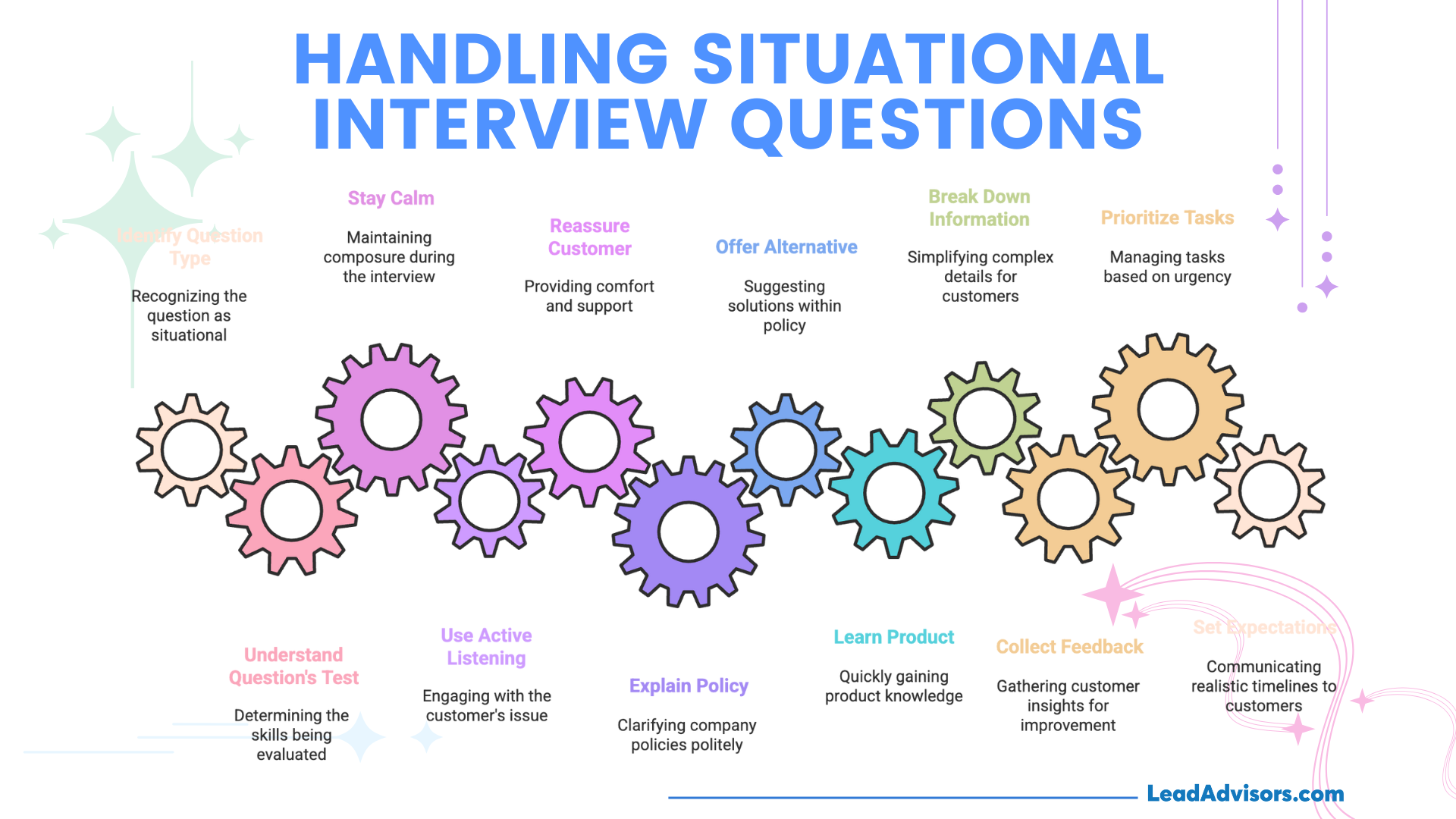
They are “what would you do if…” questions – and they’re crucial in a call center interview. Unlike behavioral questions, which are simply looking for what you did, the situational questions are a curveball to see what you’d do in a situation you might encounter. Spoiler alert: In an actual call center, you will likely experience all of the above.
Below, we’ll discuss a few of the most common situational interview questions you might encounter and how to answer them like a pro.
“How would you handle a customer who’s yelling at you?”
What it tests: Emotional regulation, empathy, and how well you can be soothing in a crisis.
How to answer:
- First, stay calm and don’t take it personally.
- Use active listening to understand their issue.
- Reassure the caller you’re there to help, even if you can’t fix the issue immediately.
- Mention how you’d follow company policies while still aiming to deliver good customer service.
“What would you do if a customer requested a refund that violates company policy?”
What it tests: Integrity, decision making, and diplomacy.
How to answer:
- Explain that you’d politely clarify the policy.
- Offer an alternative solution if available.
- Emphasize protecting sensitive customer information while still showing exceptional customer service by being transparent and kind.
“A new product launches and customers are confused – how do you handle it?”
What it tests: Flexibility, product knowledge, problem solving.
How to answer:
- Talk about quickly learning the product inside and out.
- Share how you’d break things down clearly for confused customers.
- Mention how you’d collect valuable feedback to pass on to your team or supervisor to help improve support materials or internal knowledge bases.
“How do you manage competing priorities when every customer thinks they’re urgent?”
What it tests: Time management, prioritizing, and being emotionally resilient in a high-speed environment.
How to answer:
- Highlight your ability to prioritize tasks based on urgency, impact, or set service-level agreements.
- Mention how you keep your cool and set expectations with customers.
- Reinforce your commitment to providing excellent customer service to every caller, even during busy periods.
Pro Tip for Candidates: This question is about how you think. Just stay calm, consider how it strategically affects you, and always bring the answer back to the customer, your team, and the company. To the extent you can, mini-STAR an imaginary scenario – it makes your answer leaner.
Technical, Systems & Tool Questions
Let’s talk tools. In a contemporary call center, tech know-how is not optional – it’s part and parcel of the job. Whether you’re in the running for a call center agent position or you’re overseeing a team, employers are asking: Can you work the systems that help run the contact center?
The following are some of the most common technical call center interview questions and suggested approaches to thinking through your answers.
“Are you familiar with CRM/helpdesk software like Zendesk, Salesforce, etc.?”
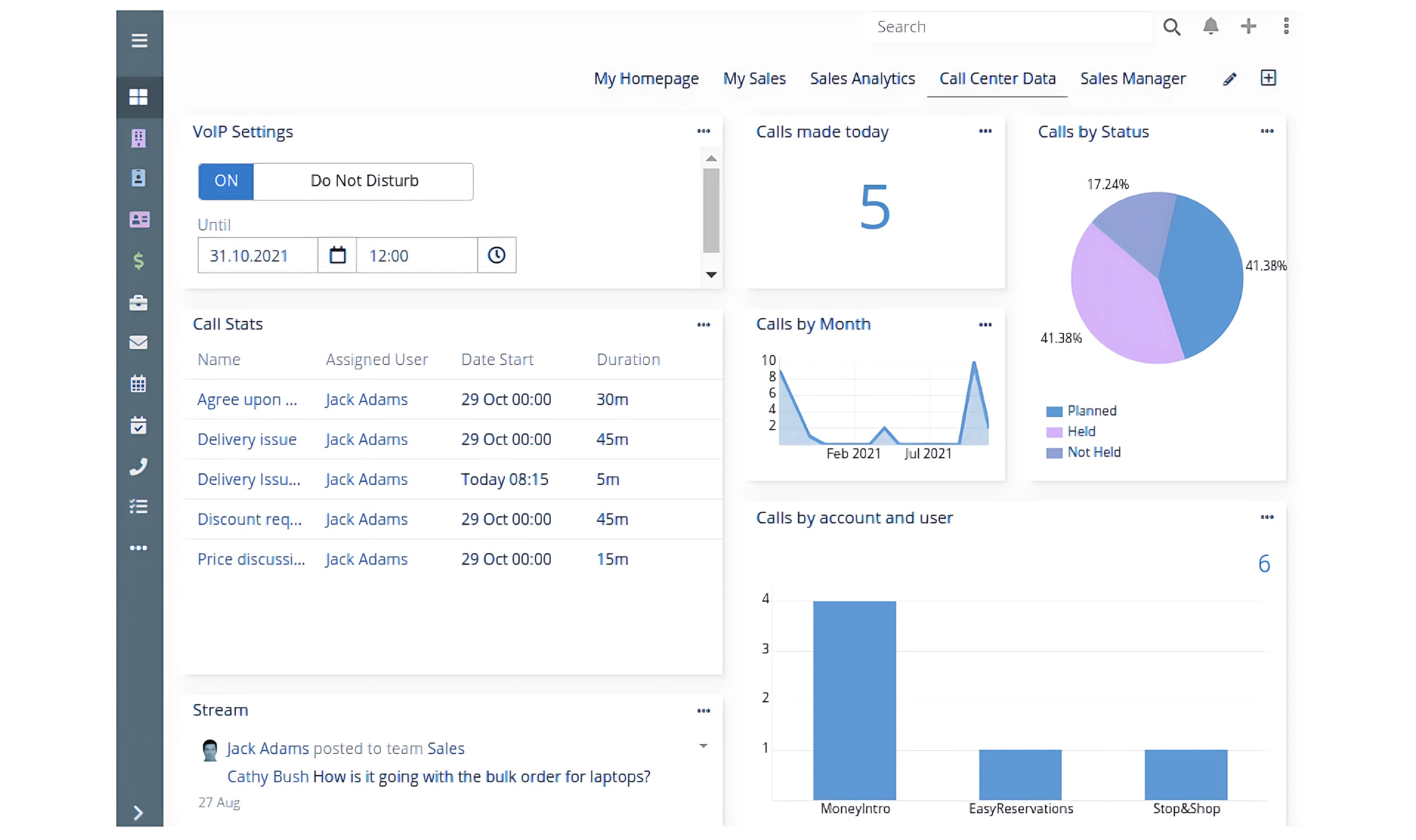
What it tests: Your proficiency with customer relationship management (CRM) systems.
How to answer:
- Name-drop the tools you’ve used (Zendesk, Salesforce, Freshdesk, etc.).
- Share how you used them to log tickets, track customer interactions, or route customer inquiries.
- Bonus: Mention how these tools helped you provide great customer service and stay aligned with company policies.
“What metrics have you worked with (e.g., CSAT, AHT, FCR)?”
- What it tests: Nailing down call centre KPIs and how you use them to enhance your performance.
| Metric | What It Measures | Why It Matters |
| CSAT (Customer Satisfaction Score) | How happy or satisfied customers are after an interaction | Reflects the overall customer experience and quality of service |
| AHT (Average Handle Time) | How long does it take to complete a customer call from start to finish | Helps evaluate efficiency and manage high call volumes |
| FCR (First Call Resolution) | How often do you resolve the issue on the first call without follow-ups | A strong indicator of problem-solving skills and excellent customer service |
“How do you document and follow up on customer issues?”
What it tests: Your attention to detail and accountability.
A strong answer includes:
- Logging accurate notes in the CRM
- Flagging unresolved tickets
- Following up by going out there and making a proactive visit is in line with giving amazing customer service.
Extra points: Discuss your appreciation for storing sensitive customer data ethically and responsibly.
“Have you used call QA tools or contributed to performance reviews?”
What it tests: Your exposure to quality assurance and team development.
What to say:
- You tell us how you’ve used QA tools (e.g., scoring calls, reviewing tone, script adherence, and resolution quality).
- If you have been involved in a review process – whether on the giving or receiving end – speak to how it helped you become better or improve metrics like CSAT.
- This tells us you are invested in lifelong learning and know how to provide or implement excellent feedback.
For Hiring Teams: Seek responses that demonstrate fluency in those tools, and how those tools enable better service, not just throwing around the name of software.
For Candidates: Consider tools as your co-pilots. The more you know about them, the better you can serve your customers and hold yourself accountable.
Wildcard & Creative Questions
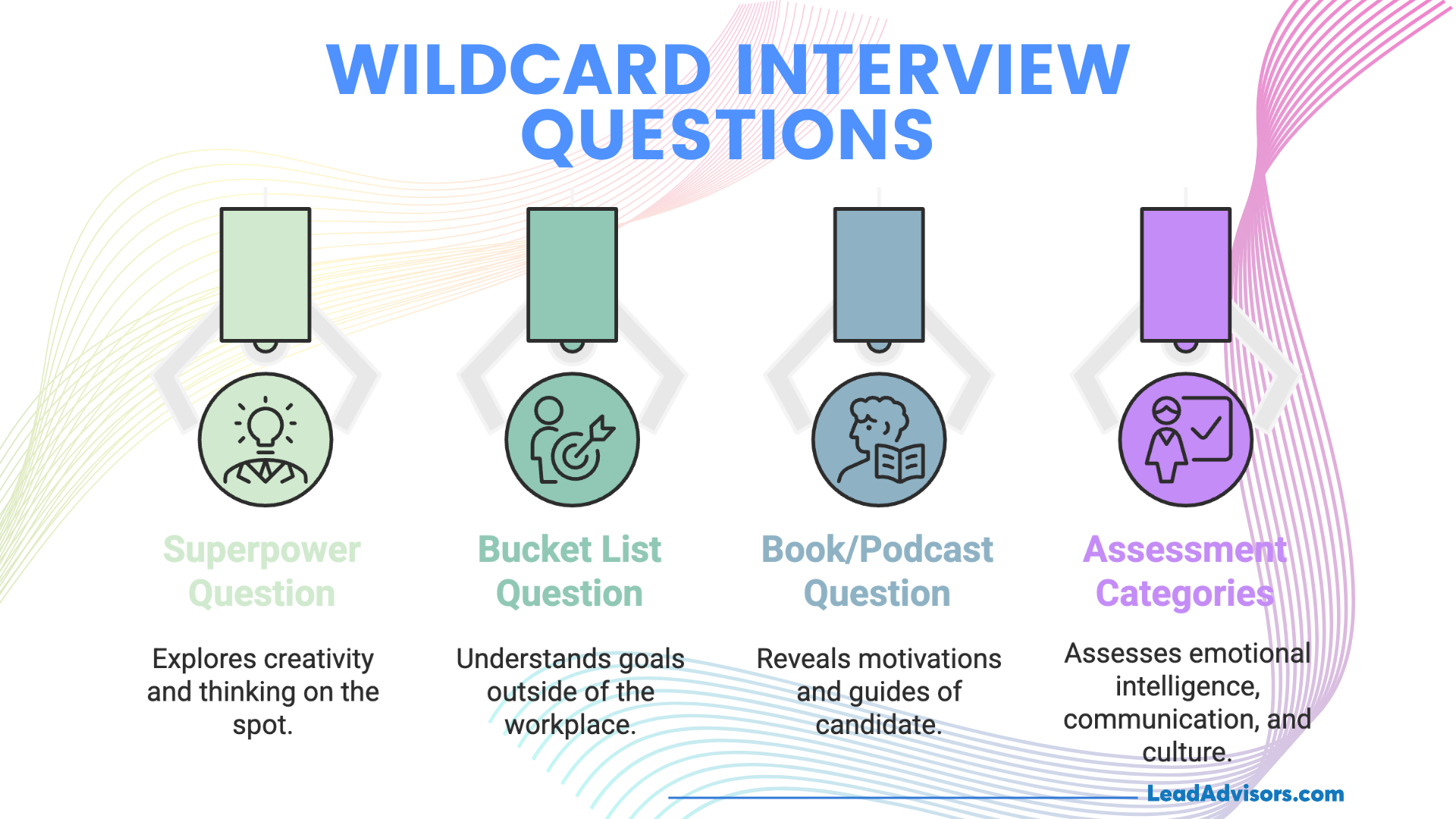
You don’t have to love every center job interview question, and not every question has to sound like it was pulled straight from a script. Sometimes the best ideas come from questions that have little to do with metrics or customer policies. These unusual prompts can help hiring teams get to a candidate’s human side and support the candidate in showing who they are.
Here are three probing wildcard questions that read more deeply than meets the eye:
If you could have any superpower, what would it be and why?
- Why it’s asked: To generate creativity and see how someone thinks on their feet.
- What it reveals is imagination, values, and maybe work style. A person who takes “mind reading” might appreciate empathy; a person who takes “time control” may be all about efficiency (ready for a fast-paced world).
- How candidates can shine: Tie it to the job – Explain how the “power” demonstrates your ability to improve customer experience or to enhance performance in general.
What’s something on your bucket list?
- Why it’s asked: To understand a candidate’s goals outside the workplace.
- What it reveals: Personality, ambition, and whether they’ll carry a sense of curiosity or push to the center of the stage.
- Tip for candidates: Don’t be fake. Skydiving (or writing a book) here is about demonstrating passion, something every effective call center agent possesses.
What’s a book or podcast you’ve enjoyed recently?
- Why it’s asked: To find out what motivates or guides the candidate.
- What it reveals: thoughtfulness, interests, and occasionally even an alignment with the company’s mission or values.
- Strong candidate move: Say something about communication, leadership, and professional development. It demonstrates that you’re not just clocking in, you’re growing as well.
Why Wildcards Matter
These questions might sound random, but they’re strategic. They help assess:
- Emotional intelligence
- Communication style
- Culture adds (not just fits)
- How a candidate might contribute to team energy
In short, they help uncover the people who can thrive in the real-world rhythm of a call center rather than just survive it.
Red Flag & Illegal Questions (What Not to Ask)
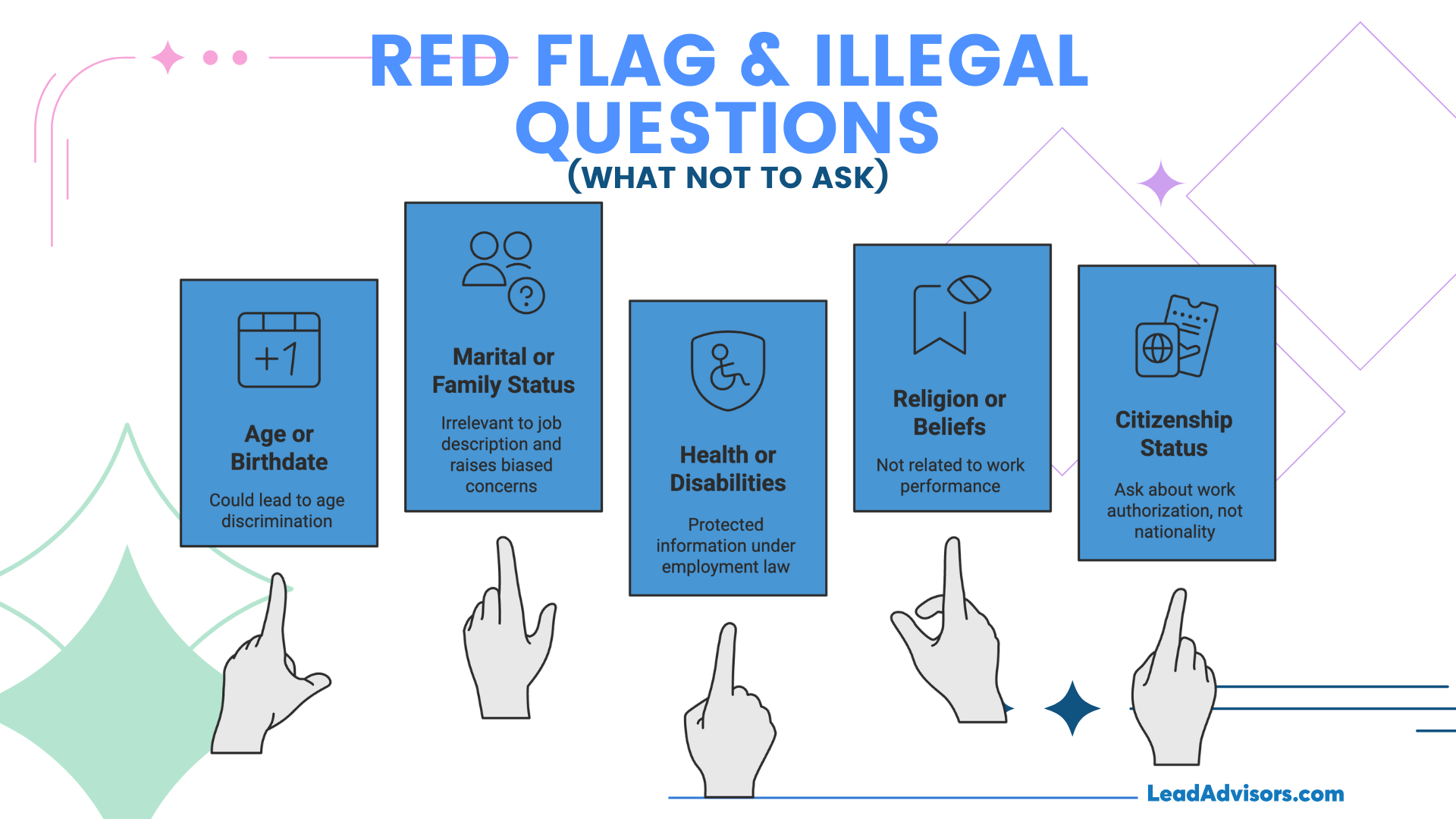
Let’s get one thing straight: not all questions belong in a call center interview, no matter how casual the conversation feels. Whether you’re hiring for a center position or sitting in the candidate chair, knowing what not to ask (or answer) is just as important as the official script.
Here’s a quick breakdown to help keep the interview process fair, legal, and focused on what really matters: job fit.
Questions You Should Never Ask
These are personal and potentially discriminatory – and they’re illegal in most hiring contexts:
| Avoid Asking About | Why It’s Off-Limits |
| Age or birthdate | Could lead to age discrimination |
| Marital or family status | Irrelevant to the job description and raises biased concerns |
| Health or disabilities | Protected information under employment law |
| Religion or beliefs | Not related to work performance |
| Citizenship status (unless required for verification) | Ask about work authorization, not nationality |
What You Can and Should Focus On
Keep the questions centered around the actual role, qualifications, and availability. Here’s what’s fair game:
| Ask About | Because It Helps You Evaluate… |
| Ability to work required hours | Scheduling fit and call center coverage |
| Experience handling customer interactions or high volumes | Real-world readiness |
| Comfort with call center tools or systems | Job capability and training needs |
| Willingness to work in a fast-paced environment | Performance under pressure |
| Interest in professional development or long-term goals | Alignment with company values |
Quick Tip for Hiring Teams
If you’re ever unsure whether a question is appropriate, ask yourself this:
“Does the answer affect this person’s ability to succeed in this job?”
If not, skip it.
Staying professional protects your company and helps you focus on what really matters – finding candidates who can deliver great customer service, thrive in a call center environment, and grow with your team.
Top 5 Tips for Candidates Preparing for a Call Center Interview
So, you’ve landed the interview – nice! Now let’s make sure you’re not just ready, but well prepared to stand out. Whether it’s your first call center job or your next big move, these tips will help you shine in every round of the hiring process.
1. Know the Role and the Company
Before you walk in (or log on), do your homework.
Understand the job description, company values, and how they define quality customer service. If you can tie your skills or experience back to their mission, you’re already ahead of the game.
2. Practice with the STAR Method
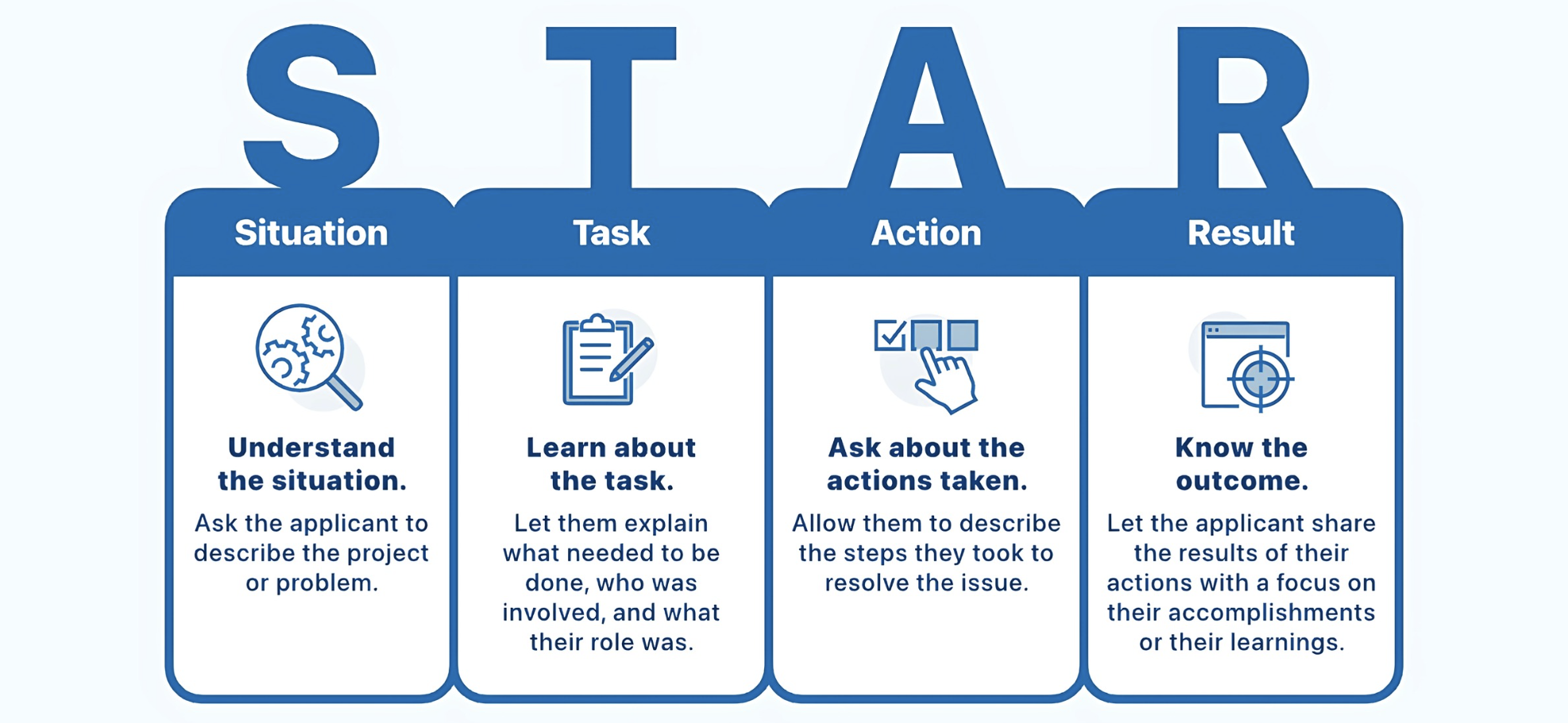
When answering behavioral questions, structure your responses using STAR:
Situation → Task → Action → Result
This keeps your answers clear, concise, and easy to follow, especially when discussing problem-solving, handling an angry customer, or juggling multiple tasks.
To get even more confident, try running through a mock call script tailored to common customer service scenarios.
3. Be Ready to Show Empathy + Clarity Under Pressure
Things get intense in a fast-paced environment. Show that you can stay calm, listen actively, and respond confidently – even when a customer is upset or confused. Great communication skills and emotional control are huge wins here.
4. Show Comfort with Tools and Systems
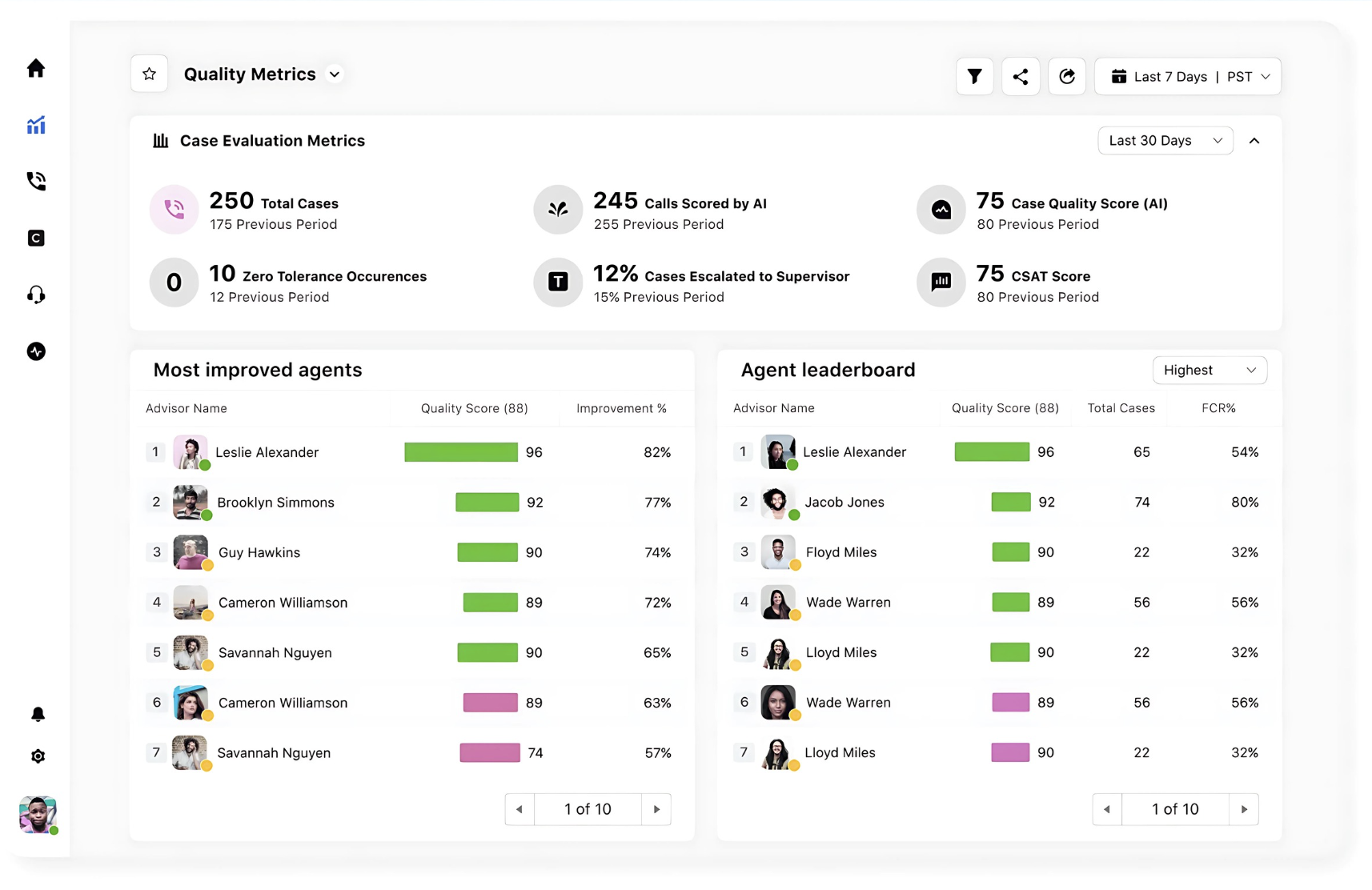
Whether it’s Zendesk, Salesforce, or internal CRMs, modern contact centers run on tech. Share your experience with QA tools, ticketing platforms, or even scripts, and how they helped you deliver excellent customer service.
5. Ask Thoughtful Questions at the End
When they ask, “Do you have any questions for us?” – say yes.
Ask about the team culture, opportunities for professional development, or how success is measured in the role. It shows genuine interest, curiosity, and that you’re thinking long-term.
Tips for Hiring Managers Conducting Call Center Interviews
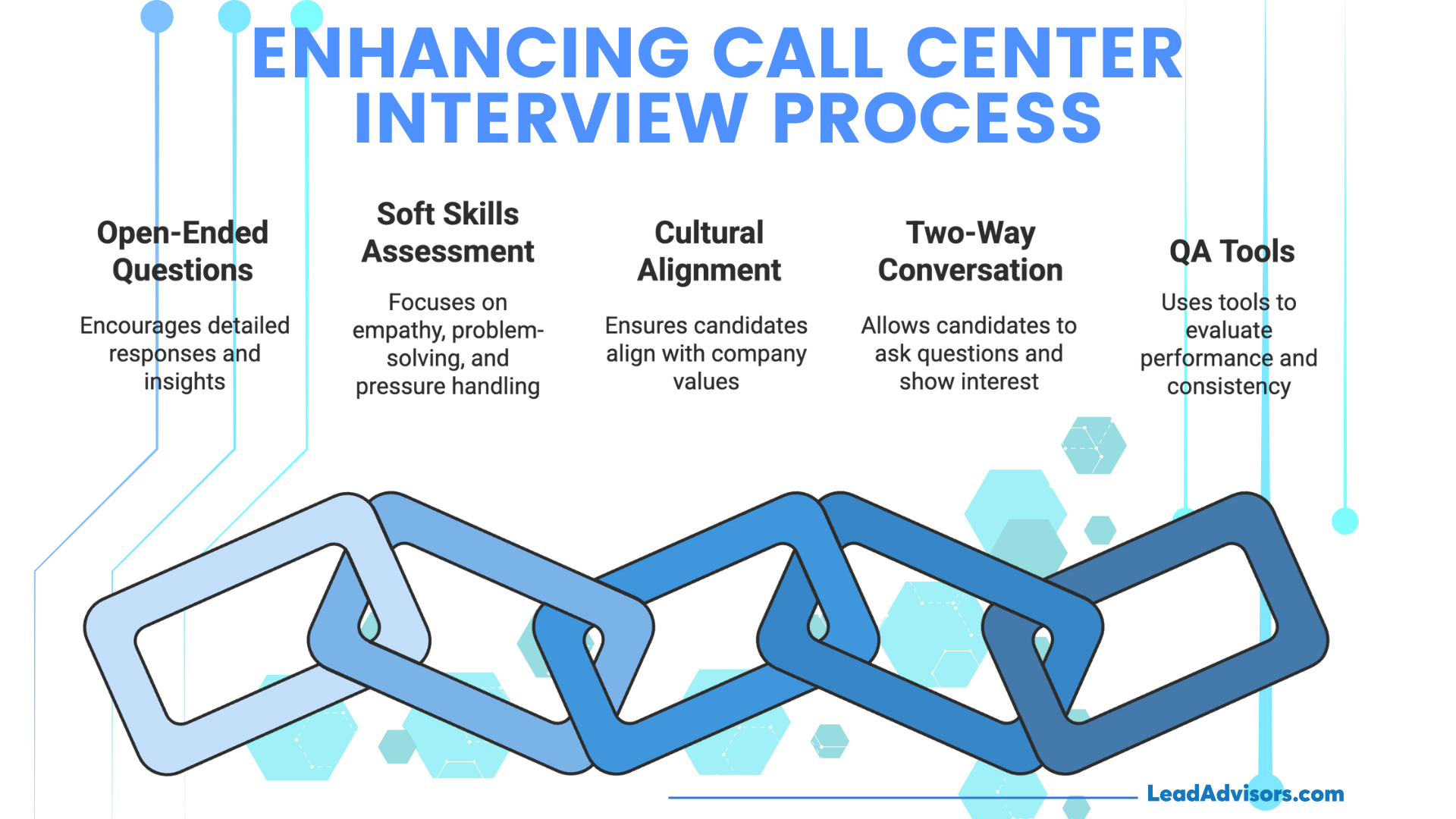
Holding a call center interview? The idea is to do more than fill a role – to spot someone who flourishes under pressure, adjusts quickly, and provides stellar customer service every day. This is how you can upgrade the interview process, from beginning to end.
When you’re starting the interview…
→ Use open-ended questions to break the ice and learn more.
Rather than a strict yes/no template, try:
- “Tell me about a time you handled a tough customer.”
- “How do you define excellent customer service?”
Open-ended questions open the way for stories – and that’s where the real insight is.
As you listen to their responses…
→ Look beyond experience—tune into soft skills.
Yes, having worked in a call center before can come in handy. But don’t overlook how they:
- Handle pressure
- Show empathy
- Demonstrate problem-solving skills
Frequently, willingness to learn and attitude matter more than resume lines in contact center positions.
As you assess team fit…
→ Think about culture alignment and long-term potential.
Ask yourself:
- Do they reflect our company’s mission or values?
- Are they eager to grow, open to feedback, and interested in professional development?
Seek out someone who’s not just a fit, but a future leader.
When the tables turn, they ask questions.
→ Make space for two-way conversation.
You learn a lot about them by how they deal with it here. Do they inquire about your management philosophy, team climate, or career path prospects? That demonstrates real interest and considerate intent, not someone who will take any job.
After the interview or during decision-making…
→ Consider using QA tools for mock calls or training evaluations.
Tools such as call recording review or performance review scoring can help you assess tone, adherence to script, and customer experience style before onboarding.
This adds consistency and removes guesswork from the hiring process.
Hiring Reminder:
You’re not hiring just a voice – you’re hiring a problem solver, a team player, and a cool head in a sea of chaos. Base your questions on that.
Frequently Asked Questions
What does the "Remote Tech Stack" look like in 2026?
How is security handled for remote agents?
Do I need a high-speed internet connection for these tools?
Will I be monitored via camera?
What is the biggest mistake to avoid in a 2026 interview?
Conclusion: The Future of the Human-AI Connection
In 2026, the “standard” call center has evolved into a high-value customer experience hub. Strong interviews are the only way to build teams capable of navigating this new landscape. As we’ve seen, the right questions help pinpoint candidates who possess Intelligent Empathy, technical fluency, and the resilience to handle complex human emotions that AI simply cannot.
For companies looking to scale, the decision to outsource to Philippines is no longer just about cost—it’s about accessing a workforce that leads the world in “Human-in-the-Loop” excellence.
Job Seekers: Use this guide to move beyond the script. Show that you are a “Super Agent” who can pilot AI tools while keeping the customer’s heart at the center of the conversation.
Hiring Managers: Hone your process. Don’t just hire for a voice; hire for a problem-solver who adds to your culture and understands the 2026 tech stack.
Better questions + Better AI + Better Humans = Unbeatable Service.



